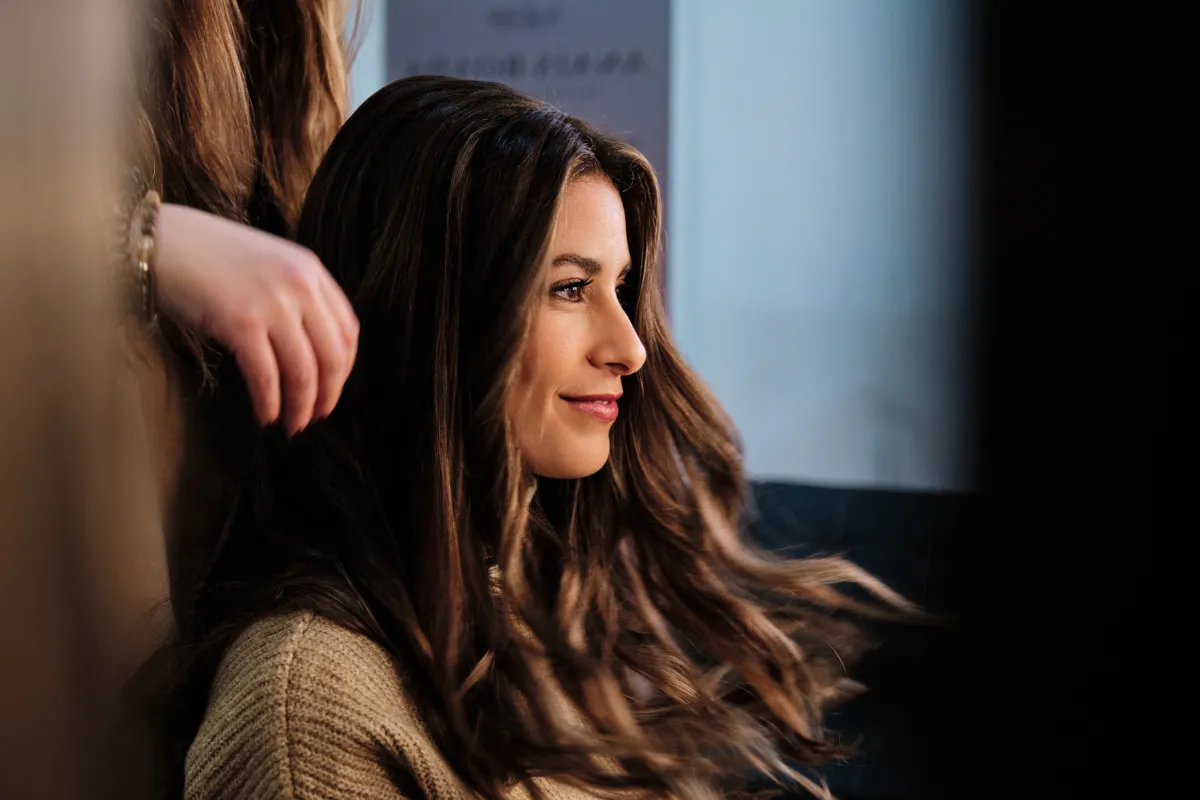Glossy, voluminous hair is often considered a crowning glory, reflecting both inner vitality and external beauty.
While various factors contribute to hair health, the role of vitamins in promoting strong, vibrant hair cannot be overstated.
In this comprehensive guide, we’ll delve into the world of hair vitamins, exploring their benefits, sources, and how they can help you achieve luscious locks.
Vitamin A: Nourishing the Scalp and Promoting Hair Growth
Role in Hair Health:
Vitamin A plays a crucial role in the production of sebum, the natural oil that moisturizes the scalp and keeps hair follicles healthy.
Adequate vitamin A levels are essential for maintaining a well-hydrated scalp and promoting hair growth.
Food Sources:
Vitamin A-rich foods include sweet potatoes, carrots, spinach, kale, eggs, and liver.
Incorporating these foods into your diet can help ensure sufficient vitamin A intake for optimal hair health.
Supplements:
While vitamin A supplements are available, it’s important not to exceed the recommended daily intake, as excessive vitamin A can lead to hair loss and other adverse effects.
B Vitamins: Energizing Hair Follicles and Preventing Hair Loss
Role in Hair Health:
B vitamins, particularly biotin (B7), niacin (B3), and pantothenic acid (B5), are essential for nourishing hair follicles, promoting cell turnover, and preventing hair loss.
Biotin, in particular, is known for its role in strengthening hair strands and enhancing overall hair health.
Food Sources:
B vitamins are abundant in a variety of foods, including whole grains, nuts, seeds, legumes, meat, fish, dairy products, and leafy greens.
Consuming a balanced diet rich in these foods can help ensure adequate intake of B vitamins for healthy hair growth.
Supplements:
Biotin supplements are popular among those looking to improve hair health, but it’s important to consult with a healthcare professional before starting any supplementation regimen, as excessive biotin intake can interfere with certain lab tests.
Vitamin C: Boosting Collagen Production and Enhancing Hair Strength
Role in Hair Health:
Vitamin C is a powerful antioxidant that plays a vital role in collagen production, a protein essential for maintaining hair strength and elasticity.
Additionally, vitamin C aids in the absorption of iron, another crucial nutrient for healthy hair growth.
Food Sources:
Citrus fruits, strawberries, kiwi, bell peppers, broccoli, and tomatoes are excellent sources of vitamin C.
Including these foods in your diet can help support collagen synthesis and promote optimal hair health.
Supplements:
While vitamin C supplements are widely available, obtaining nutrients from whole foods is generally preferred, as they provide a broader range of nutrients and phytochemicals beneficial for overall health.
Vitamin D: Regulating Hair Growth and Preventing Hair Loss
Role in Hair Health:
Vitamin D receptors are present in hair follicles, indicating its importance in regulating hair growth cycles.
Adequate vitamin D levels are associated with improved hair density and reduced risk of hair loss.
Food Sources:
While few foods naturally contain vitamin D, fatty fish (e.g., salmon, mackerel, sardines), fortified dairy products, eggs, and mushrooms are some dietary sources.
However, sunlight exposure remains the primary source of vitamin D synthesis in the body.
Supplements:
Due to limited dietary sources and inadequate sun exposure for some individuals, vitamin D supplementation may be necessary, especially for those with deficiency or insufficient levels.
Vitamin E: Protecting Hair from Environmental Damage and Enhancing Shine
Role in Hair Health:
Vitamin E is a potent antioxidant that helps protect hair follicles and strands from oxidative stress caused by environmental factors like pollution and UV radiation.
Additionally, vitamin E promotes blood circulation to the scalp, supporting healthy hair growth.
Food Sources:
Nuts, seeds, avocado, spinach, and sunflower oil are rich sources of vitamin E.
Including these foods in your diet can help maintain optimal levels of this essential nutrient for healthy hair.
Supplements:
While vitamin E supplements are available, obtaining vitamin E from dietary sources is generally recommended, as excessive supplementation can lead to adverse effects.
Conclusion:
Incorporating vitamins into your diet is a crucial aspect of maintaining healthy, beautiful hair.
From vitamin A’s role in scalp health to vitamin E’s protective benefits, each vitamin plays a unique role in promoting strong, vibrant hair.
By consuming a balanced diet rich in nutrient-dense foods and, if necessary, supplementing with vitamins under the guidance of a healthcare professional, you can support optimal hair growth and achieve the luscious locks you’ve always desired.
